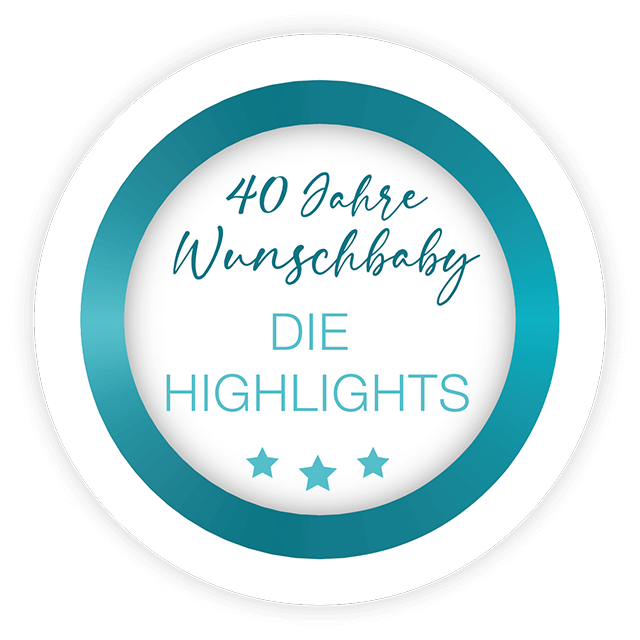
IVF - In Vitro Fertilisation
With the IVF treatment, 100,000 sperm are put in close contact with one egg. The best sperm will have to find its way to the egg by itself.
Indication
The conventional IVF treatment is the right choice for artificial insemination, if there is an obstruction of the fallopian tubes, endometrosis or PCO Syndrome, providing the spermogram shows normal levels.
Chances for Success
The chance for successful pregnancy with the IVF treatment is 30-40% per cycle, depending on the age of the couple, hormone levels, disease (Diabetes mellitus, hypertension, etc.) and lifestyle (excess weight, stress, alcohol and nicotine use, etc.)
Treatment Procedure
HORMONAL STIMULATION OF THE OVARIES
In Vitro Fertilization (IVF) and Intracytoplasmic Sperm Injection (ICSI) treatments are, save for a few exceptions, conducted by hormonally stimulating the ovaries.
The goal of hormone therapy is to encourage several follicles on both ovaries to extend and then extract several eggs ready to be fertilized.
The phase known as "down-regulation" prepares the body for stimulation by suppressing bodily hormone production or excretion. This so-called "down-regulation" can be regulated either through oral medication or daily subcutaneous injections, the advantage being heightened external control.
FHS (follicle stimulation hormone) and LH (luteinizing hormone) are used in their pure forms or as a combination drug for subsequent stimulation of the ovaries. During hormone treatment, precise quantities of these hormones (depending on age, weight, etc.) are applied in the form of subcutaneous injections. The application of these hormones will be explicitly explained and demonstrated at the beginning of treatment. It can be carried out by the patient themselves or their partner; daily doctor visits are not necessary.
The number of follicles, the progress of their growth, and the structure of the endometrium are tracked through close-meshed ultrasonic testing. When follicles reach a certain size, ovulation will be induced by applying the hormone hCG (human Chorionic Gonadotropin): thereby eggs are extracted at the optimum time point, immediately before ovulation.
EGG CELL EXTRACTION
Thirty-six hours after the ovulation-inducing injection, ultrasound is used to visualize the ovaries and the egg cells are extracted transvaginally. Follicles are punctured and the follicle fluid together with the incorporated eggs will be extracted. Afterwards, the eggs will be isolated from this fluid, transferred to a special growing medium, and incubated at 37°C. The follicle puncture takes an average of five-fifteen minutes, depending on the number of follicles. To make this surgical intervention easier, our patients receive a combination of barbiturates (sleeping pills) and analgesics (pain killers).
Follicle puncture is an ambulatory procedure and it is absolutely necessary to have a observation period of one-two hours afterwards in our relaxation areas.
SPERM EXTRACTION
After two–three days without ejaculation, the male partner is asked to ejaculate on the day the eggs are extracted, to extract sperm from the ejaculate. This is not always easy to coordinate, especially since the patient is given a time constraint and may feel pressured. In certain cases, it is possible to bring a sperm sample from home; however it is very important that the time between ejaculation and sperm extraction at the institute not exceed two hours.
FERTILISATION TREATMENT - CONVENTIONAL IVF
Fertilization of the extracted eggs is carried out on the same day. Sperm that has been prepared using a special technique will be added to each egg in a culture dish; fertilization proceeds “naturally.” On the next day, a microscope will monitor how many eggs exhibit characteristics of an occurred fertilization (two pro-nuclear and two polar bodies).
EMBRYO TRANSFER
 Two–five days after fertilization, two–three embryos will be transferred to the uterus by a thin, flexible catheter using an ultrasound. The day of embryo transfer is determined by the number of fertilized eggs: if one–four eggs are fertilized, they will be transferred again to the uterus two–three days after follicle puncture.
Two–five days after fertilization, two–three embryos will be transferred to the uterus by a thin, flexible catheter using an ultrasound. The day of embryo transfer is determined by the number of fertilized eggs: if one–four eggs are fertilized, they will be transferred again to the uterus two–three days after follicle puncture.
During this period, the development of the embryos (cell division) will be monitored daily and evaluated according to specific criteria, i.e. cell division rate and progression of cell division. The qualitatively best embryos will be selected for the transfer. On the fifth day after fertilization, if there are five or more embryos, it will progress to a transfer, called a blastocyst transfer: the most developed stage an embryo can achieve outside of the body. If there are more viable embryos available than is needed for embryo transfer, the embryos can be cryogenically preserved (frozen in liquid nitrogen).
The embryo transfer takes only a few minutes and the procedure is generally painless. We advise our patients to spend twenty-thirty minutes afterwards in our relaxation areas.
LASER-ASSISTED HATCHING (LAH)
The embryo is encircled by a firm shell, the so-called zona pellucida. When the embryo reaches the blastocyst stage during growth, it needs to hatch out from this shell in order to embed in the uterus (nidation). This shell is sometimes “hardened” or exceptionally thick, making the process of nidation more difficult or even impossible. When this happens, a laser thins out or carves the shell, encouraging the embryo to hatch and making nidation easier.
NIDATION PHASE (LUTELAL PHASE)
The egg extraction begins the second phase of the cycle, the so-called Yellow Bodies Phase. Medication induces hormonal production of these yellow bodies, preparing the endometrium for nidation. In the luteal phase, medication can be applied in the form of intra-muscular depository injections, subcutaneous injections, pills or vaginal suppositories.
At the earliest, a pregnancy can be verified two weeks after fertilization by measuring levels of the pregnancy hormone hCG in blood and urine. After a pregnancy has been verified, the luteal phase will be supported until the twelfth week of pregnancy.
Any questions?
If you have any questions, you can either direct them at one of our specialists via the form below or call our friendly receptionists under +43/1/877 77 75 and have an appointment scheduled.














